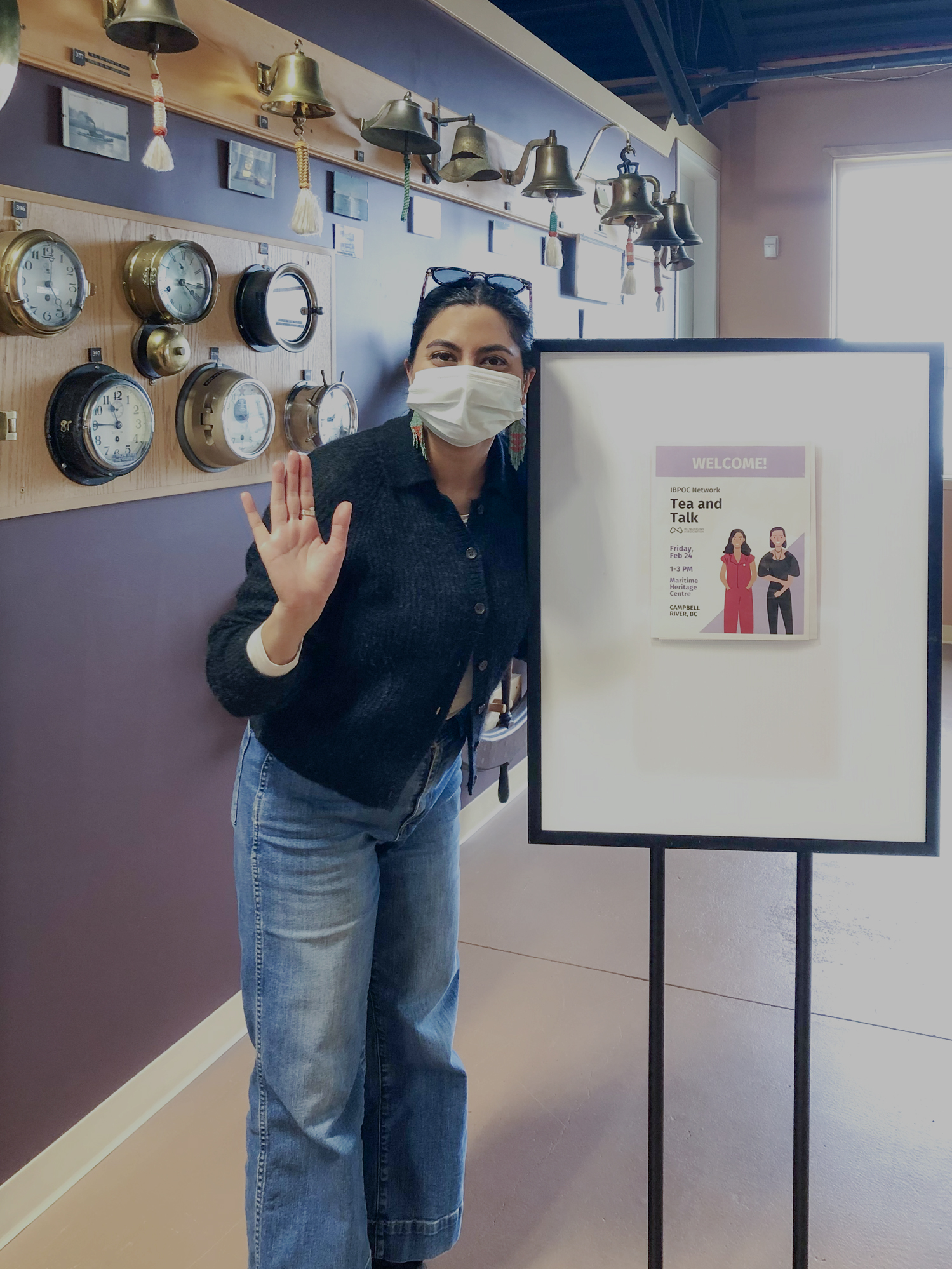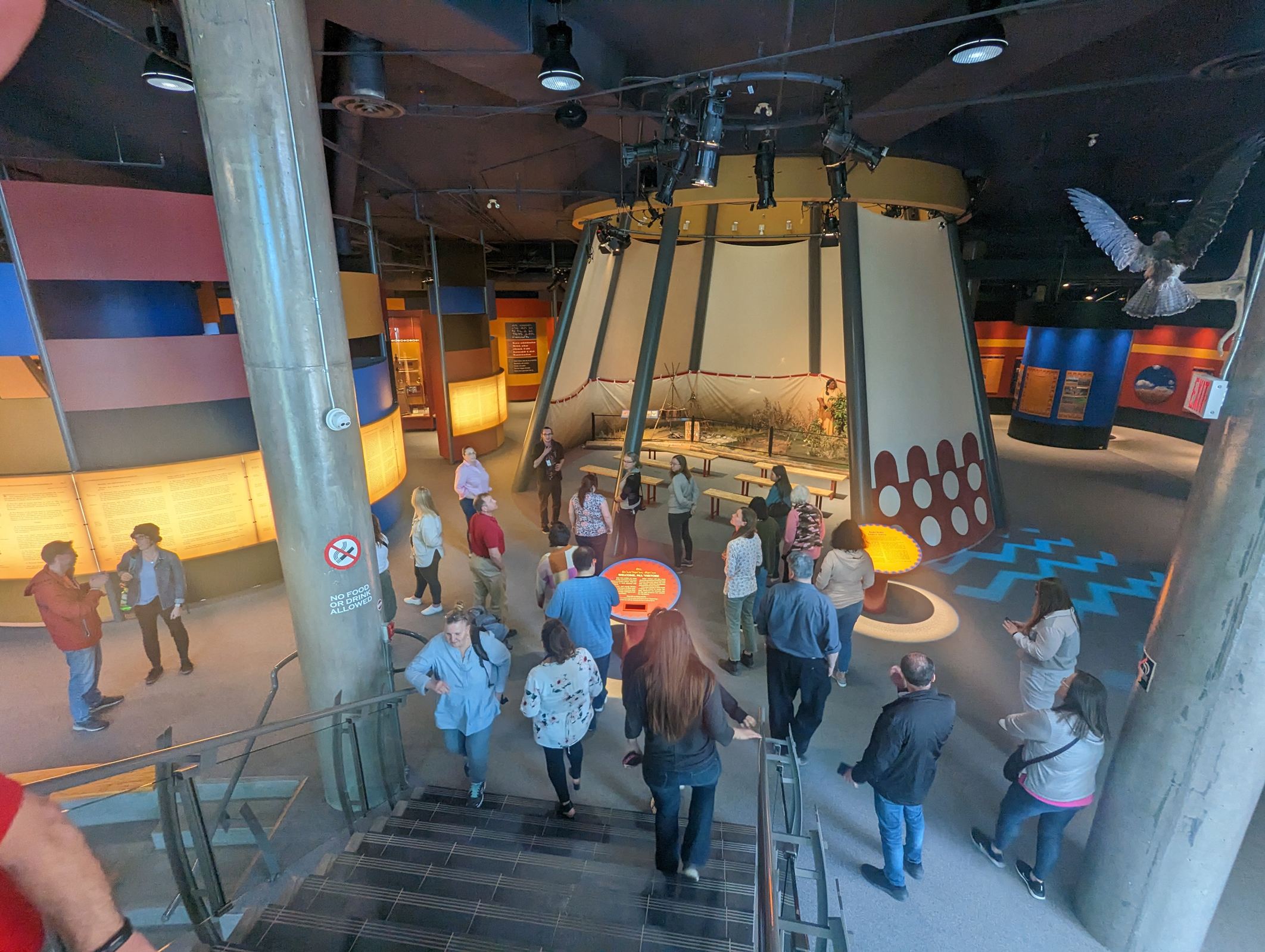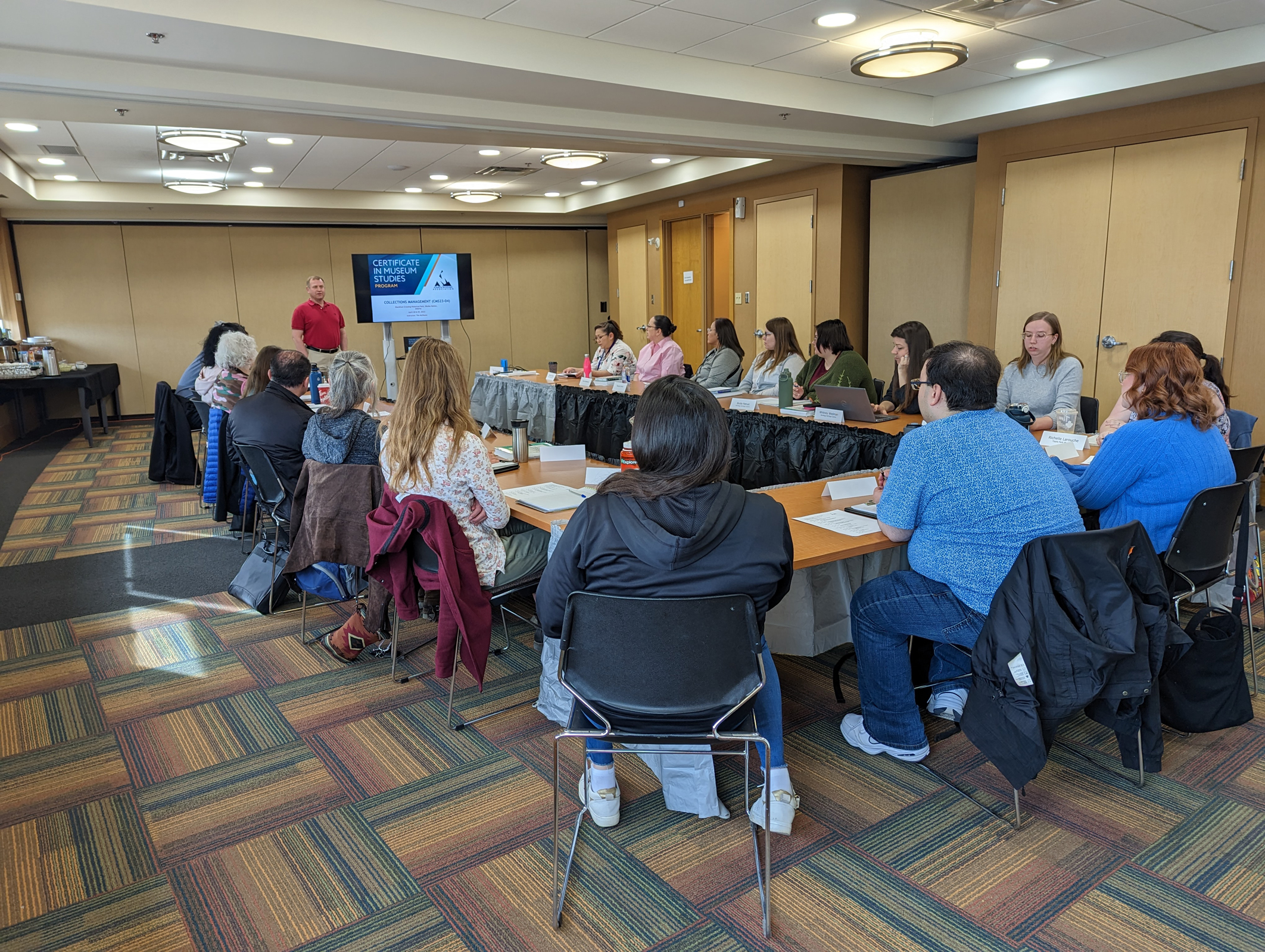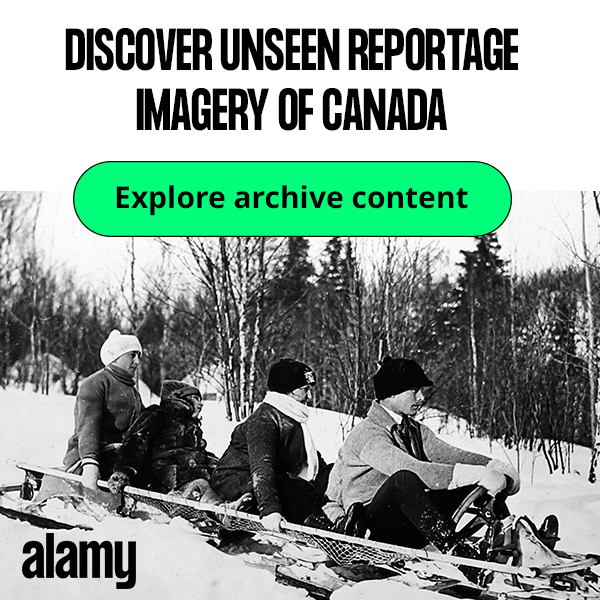A Changing Approach to Professional Development
One of the roles held by museums associations in Canada is to ensure that their museum members are equipped to handle societal changes and the external pressures and expectations that accompany them.
Recently, and particularly since the onset of COVID-19, there has been a societial shift, increasing focus on the capacity of museums to respond to calls to address questions of societal equity and questions of reconciliation. The background and necessity for these areas of focus has been well documented. One area where museums have been making signficant efforts is in professional development programs.
Since 2002, the Alberta Museums Association (AMA) has been offering a Certificate in Museum Studies (CMS) Program as part of their professional development offerings. The program provides emerging and entry-level museum professionals with an understanding of current theories and standards in museum practice. The Program is designed for museum professionals with no formal training and for those looking for further development in an unfamiliar area of museum practice.
The CMS program is reviewed every five years to incorporate updates to museum practice. Currently, a review and redevelopment of the program, conducted by Hatlie Group, is underway. One of the focuses of this review is to move the program toward an online format. “Since Fall 2021, the AMA has been reviewing and adapting our CMS courses to virtual learning opportunities. The driving force behind this review and adaptation is to increase the accessibility of the Program,” says CMA Program Lead Meredith Leary.

Network Coordinator Jazmin Hundal stands next to the sign for their first “Tea and Talk: On The Road” event in February 2023 at the Maritime Heritage Centre in Campbell River. Photo — Leia Patterson.
The accessibility component is part of a larger move from the AMA toward implementing a decolonial pedagogical framework in their CMS program. Leary notes that the review not only aims “to ensure that the content continues to align with contemporary issues facing the sector and the changing role that museums play in their communities,” but that it will “culminate in the creation of a new course in the Program that will address issues of reconciliation, decolonization, and Indigeneity within museums .“ She also mentioned that part of the decolonial framework of this new course will be to let Indigenous instructors develop and teach it, and that registration fees for virtual CMS courses are waived for self-identified First Nations, Métis, and Inuit members of the AMA. “The AMA strives to integrate reconciliation into all the Association’s programs and services, and to encourage greater engagement with and representation of Indigenous individuals and perspectives in the Alberta Museum community,” remarks Leary.
This work is reflected in other work the AMA has done, noting their leadership in the recent release of the Reconsidering Museums project which assess decolonization as one of the contributing factors of museum relevance.
The Canadian Museums Association has also been making efforts towards decolonization, particularly through the release of its Moved to Action report and subsequent programming aimed at assisting Canadian museums in implementing the principles of the United Nations Declaration on the Rights of Indigenous Peoples (UNDRIP).

Collections Management course offered in person at Blackfoot Crossing Historical Park on April 28, 2023. Photo — Meredith Leary.
There has also been an identified overlap in the work of decolonization and it’s extended effect on other racialized and marginalized groups. In 2023, the CMA released the findings of its inaugural Workplace Diversity Survey, which aimed to create a baseline for evaluating representation and inclusion within Canada's heritage sector. The results of this survey and its subsequent iterations are intended to equip policymakers with the evidence needed to devise credible and impactful policies that promote fairness and equity within the sector.
One of the more staggering findings relates to the lack of representation of Indigenous respondents, persons living with disabilities, and visible minorities in higher salary bands within museum pay structures. These findings suggest potential barriers to career advancement and pay equity. So how are associations meeting the call to support these more vulnerable professionals?
Jazmin Hundal, the Outreach Coordinator of the British Columbia Museums Association’s (BCMA) IBPOC Network, says that the network “was created respond to the immediate needs of racialized workers and volunteers in the cultural sector. Our resources, workshops, and networking sessions are always free and available to anyone who identifies as Indigenous, Black, or a Person of Colour (IBPOC).”
Unlike the AMA’s structural approach, the BCMA’s bottom-up approach stems directly from IBPOC museum professionals’ experiences navigating culture and heritage spaces. Hundal mentions that “too often do we experience racism, tokenism, gaslighting, ‘microagressions,’ and othering in environments that are designed to make us feel like we are alone in those experiences. Running this network restored my faith in the value that I and other racialized folks bring to cultural spaces.”
The vision of the Network goes beyond just empowering individual participants, but also has a positive vision with regards to increasing equitable access to the sector. “Every time we host a session, I look around the room and see how strong this community is. IBPOC folks are 23% of the workforce in this sector, and every time we build relationships with each other, I’m able to see a future where we are more than just a small percentage,” notes Hundal.

Collections Management course offered in person at Blackfoot Crossing Historical Park on April 28, 2023. Photo — Meredith Leary.
Mentorship and closed spaces are being seen as a priority for programmers within the museum's association space, but also at other non-profits with other recent examples from the Ontario Museums Association, Indigenous Curatorial Collective, and also within the CMA’s own programming which features monthly online meetings for Indigenous museum professionals continuing in 2024.
The diverse approaches by PTMAs towards supporting museums to respond to societal change within their educational initiatives is an incremental step towards the broader goals of providing alternative avenues for museum professional development. These approaches also work towards decolonizing, diversifying and de-parochializing museum studies, long kept in the ivory towers of academic institutions.
As culture and heritage enthusiasts who care for the impacts of our work in our respective communities, structural and bottom-up approaches that centre care and justice like those of the PTMAs will allow us to foster a more diverse community of museum professionals. Hundal paints this long-term vision when she notes that “knowing that we will face these challenges together inspires me to keep walking forward until this sector is a more welcoming place for us all."
